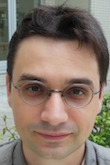
March 17, 2016
Reynald Affeldt
By adding redundancy to transmitted data, error-correcting codes(ECCs) make it possible to communicate reliably over noisy channels. Minimizing redundancy and (de)coding time has driven much research, culminating with Low-Density Parity-Check (LDPC) codes. At first sight, ECCs may be considered as a trustful piece of computer systems because classical results are well-understood. But ECCs are also performance-critical so that new hardware calls for new implementations whose testing is always an issue. Moreover, research about ECCs is still flourishing with papers of ever-growing complexity. In order to provide means for implementers to perform verification and for researchers to firmly assess recent advances, we have been developing a formalization of ECCs using the Coq proof-assistant and the Mathematical Components library. We report on the formalization of linear ECCs, duly illustrated with a theory about the celebrated Hamming codes and the verification of the sum-product algorithm for decoding LDPC codes.
(Joint work with Jacques Garrigue, Nagoya University)
